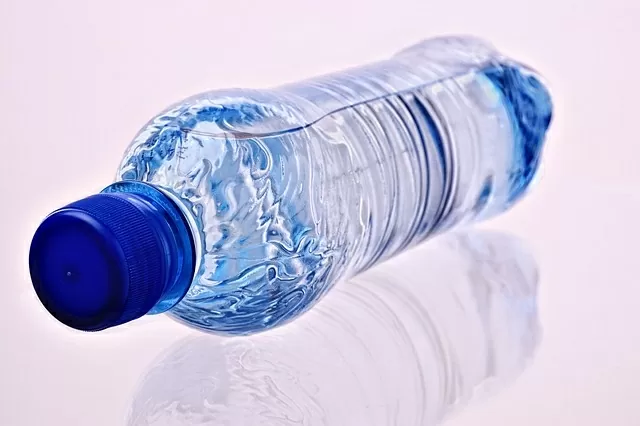 |
| Buy food that is close to expiring as needed. (Source: Pixabay) |
What is "near-expiry" food?
"Near-expiry" foods are prepackaged products that are approaching their expiration date but are still within their usable period.
There is currently no unified standard for time frames, but some guidelines provide the following reference levels: Expiry date over one year: near expiry within 45 days before expiration; Over 6 months to under one year: within 20 days; From 90 days to 6 months: within 15 days; From 30 to 90 days: within 10 days; From 16 to 30 days: within 5 days; Under 15 days: considered near expiry when there are only 1-4 days left before expiry.
Is it safe to buy food that is about to expire?
According to Professor Fan Zhihong of the School of Food Science and Nutrition Engineering, China Agricultural University, under normal conditions, it is safe to buy near-expiry food.
According to China Food Safety Law, pre-packaged products must clearly state the production date and expiry date. The expiry date is the period of time that the food will retain its good quality when stored according to the instructions on the label.
During this time, pre-packaged foods can be sold and consumed safely. Therefore, foods that are near their best before date, that is, still within their use-by date, do not pose a safety concern.
In addition, the Law on Anti-Food Waste also stipulates that supermarkets, shopping malls and food businesses must increase daily inspection of goods, classify food that is about to expire, clearly mark it or display it in a separate area.
In other words, businesses are not allowed to sell near-expiry food to consumers without notification. Sales can only be made when the information is public and transparent.
To minimize losses, many retailers often apply discount and promotion programs to quickly sell out food that is nearing its expiration date. Some supermarkets even arrange separate shelves for this item and in recent years, stores specializing in selling "near-expiry" food have also appeared.
According to Professor Fan, buying near-expiry food is not an unhealthy habit. As long as the product is still within its expiry date and purchased from a reputable supermarket or legal distribution channel, you do not need to worry about safety issues.
Some notes when buying "near-expiry" products
Mr. Fan gives some things to pay attention to when buying products that are about to expire.
First, buy what you need. Some foods have low nutritional value – like chips and other processed snacks that are high in fat, salt, and sugar – so don't let cheap prices tempt you to buy too much at once.
Second, pay attention to the production date, because fatty snacks, such as nuts, if not vacuum-sealed or packaged in a nitrogen environment, will easily go rancid over time. It is best to choose products with a close production date.
Third , if the price difference between the discounted and undiscounted items is not too great, choose several small packages rather than one large package of near-expiry food. Finally, if the food is within a week of its expiration date, put it in the refrigerator.
The professor further noted that, in addition to "near-expiry" foods, foods that have expired but the packaging is not damaged, such as canned foods, that do not have an unusual smell or shape after opening, can still be eaten.
Cookies, cereals, nutrition bars, and other low-water foods can also be stored for a long time. However, over time, their texture may change, becoming harder or softer, making them less palatable to consume.
Some types of fruit juice and bottled tea are sterilized and can be safely stored at room temperature if unopened. In addition, if the yogurt has expired but is still refrigerated, although the color and flavor of the product are less attractive, it will not pose a health risk when consumed.
Source: https://baoquocte.vn/mot-so-luu-y-khi-mua-nhung-thuc-pham-sap-het-han-su-dung-325568.html



![[Photo] General Secretary To Lam receives US Ambassador to Vietnam Marc Knapper](https://vphoto.vietnam.vn/thumb/1200x675/vietnam/resource/IMAGE/2025/9/29/c8fd0761aa184da7814aee57d87c49b3)
![[Photo] National Assembly Chairman Tran Thanh Man chairs the 8th Conference of full-time National Assembly deputies](https://vphoto.vietnam.vn/thumb/1200x675/vietnam/resource/IMAGE/2025/9/29/2c21459bc38d44ffaacd679ab9a0477c)
![[Photo] General Secretary To Lam chairs the meeting of the Central Steering Committee on preventing and combating corruption, waste and negativity](https://vphoto.vietnam.vn/thumb/1200x675/vietnam/resource/IMAGE/2025/9/29/fb2a8712315d4213a16322588c57b975)
![[Photo] General Secretary To Lam attends the ceremony to celebrate the 80th anniversary of the post and telecommunications sector and the 66th anniversary of the science and technology sector.](https://vphoto.vietnam.vn/thumb/1200x675/vietnam/resource/IMAGE/2025/9/29/8e86b39b8fe44121a2b14a031f4cef46)
![[Photo] Many streets in Hanoi were flooded due to the effects of storm Bualoi](https://vphoto.vietnam.vn/thumb/1200x675/vietnam/resource/IMAGE/2025/9/29/18b658aa0fa2495c927ade4bbe0096df)




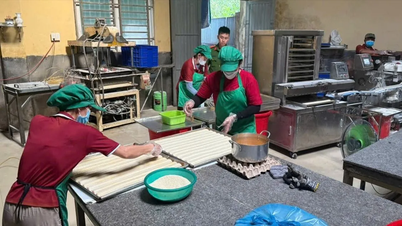













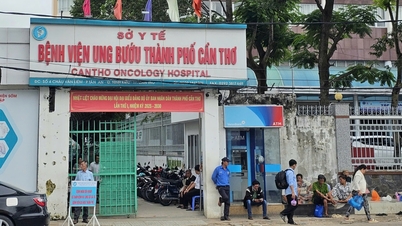
























































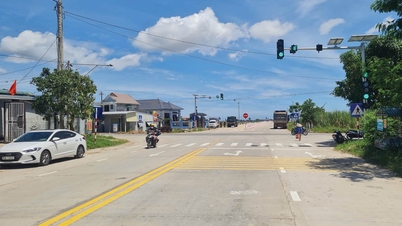



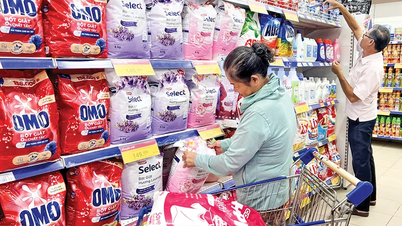

















Comment (0)